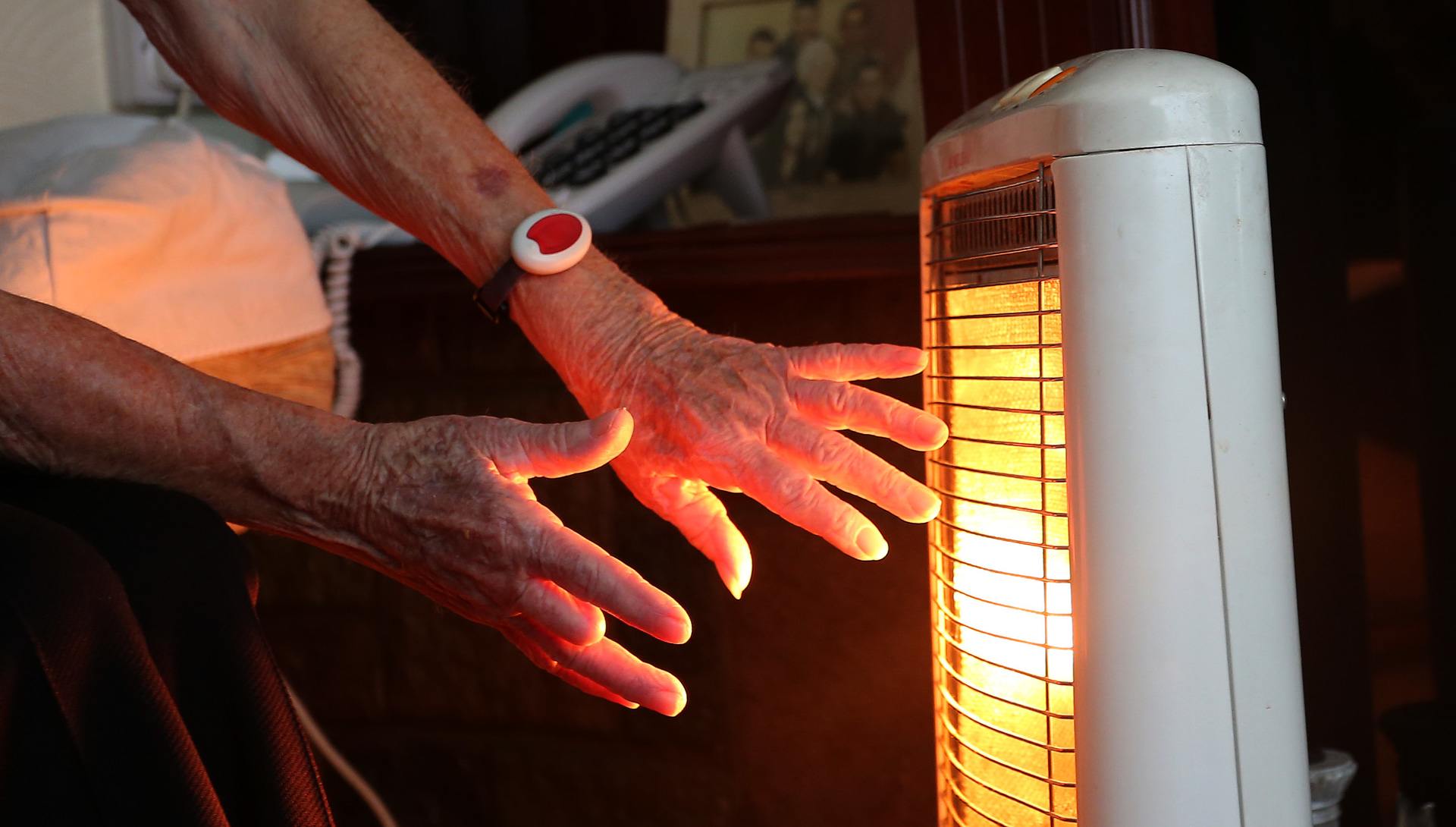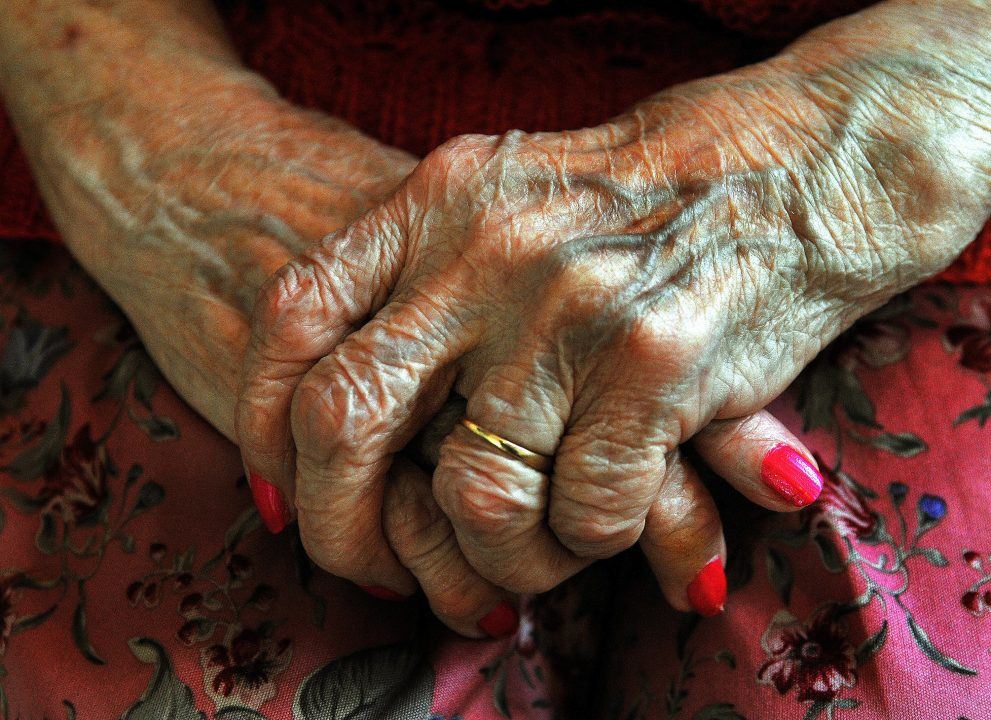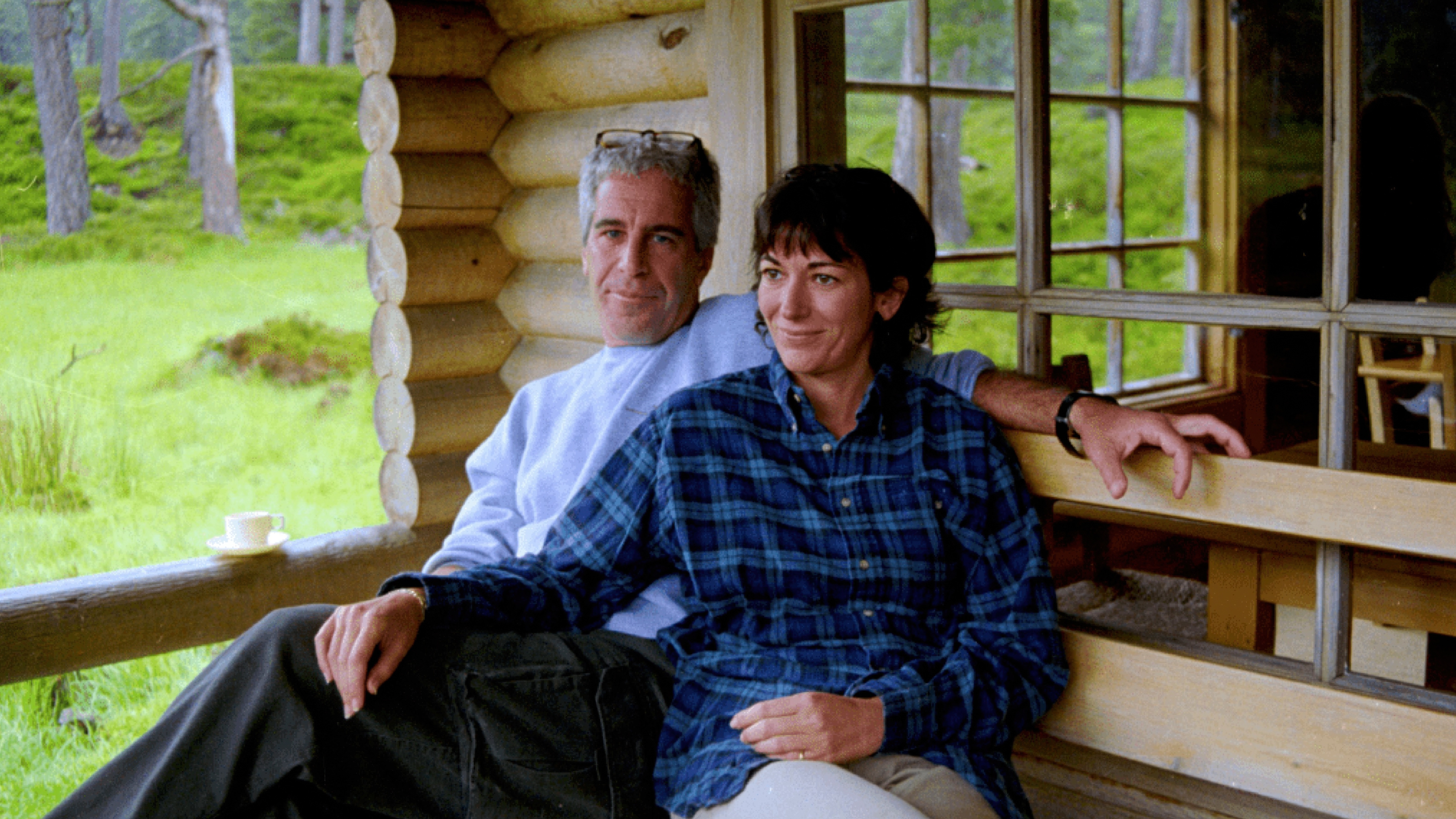Pensioners in Scotland are being forced to cut back on essentials including heating and eating because of low incomes, a poll has found, as nearly one in five live on an income of less than £15,000 a year.
Nearly one in three (29%) of Scots over the age of 66 report having skipped meals in the last year, according to the Older People’s Economic Wellbeing Index.
The survey, conducted by the Diffley Partnership and commissioned by the charity Independent Age, is the first in a series that will document trends among older people over time.
Half of those who took part in the poll said they had cut back on heating or utilities because of financial difficulties, with that number rising to 83% for those earning less than £15,000 a year.
 PA Media
PA MediaOverall, 19% of older Scots said they lived on an annual household income of less than £15,000.
Just over one in five (21%) thought the State Pension was enough to cover basic living expenses.
Older Scots on low incomes, with caring responsibilities and dealing with a health condition were more likely to cut back on heating and food, according to the report.
Around 156,000 – or one in seven – pensioners currently live in poverty in Scotland – an increase of 25% over the last decade, according to Independent Age.
The charity’s survey found most older Scots on low incomes do not feel positive about their financial situation and think the Government is not doing enough to help them.
Some 61% of older people say the amount they receive from the State Pension isn’t enough to cover basic living expenses.
At the same time, only 24% of Scots with a health condition are aware that Attendance Allowance and Pension Age Disability Payments exist.
 PA Media
PA MediaWomen are far more likely than men to report lower incomes, with 25% of older women earning less than £15,000 a year, compared to 13% of men.
Overall, 83% of pensioners on low incomes surveyed say have cut back on heating or utilities.
Nearly a third (32%) of those with a health condition had skipped meals due to costs, compared to 21% of those without a health condition, the poll found.
And 23% of women report frequently or always cut back on heating or utilities, compared to one in six (17%) men.
On housing, 40% of older people in the private rented sector said their home was “entirely suitable” for them, compared with 61% of those on a mortgage or loan and 63% who own their home outright.
Nearly a quarter (24%) said they struggled to afford to live in their home.
A large majority of older Scots also felt they were not well represented in politics with 63% they do not feel represented by the Scottish Government and 77% saying the same for the UK Government.
Across the board, older individuals with one or more health conditions are less likely to be satisfied with every aspect of life polled than those without any health conditions, including their quality of life as a whole (67% vs 90%), their level of social interaction with others (66% vs 83%), their general health (50% vs 90%) and their ability to access public transport (54%; 73%).
The vast majority of older people (85%) supported the Scottish Government creating a pensioner poverty strategy, and 81% supported the creation of an Older People’s Commissioner.
Debbie Horne, Scotland policy and public affairs manager at Independent Age, said: “In a fair and just society, no-one should be living their later years cutting back on food or not using the heating.
“They shouldn’t be living in a home that doesn’t meet their needs.
“Our new Index paints a stark picture of the reality of living on a low income in Scotland in 2025.
“We’re calling on the Scottish Government to develop a Pensioner Poverty strategy to address the misery felt by a rising number of older Scots on a low income.
“This should set out actions to boost incomes and social security take up and improve housing affordability and energy efficiency.”
Ms Horne said the Scottish Government should also create an Older People’s Commissioner while the UK Government should ensure its social security payments to pensioners are enough for them to live on.
Mark Diffley, founder and director of the Diffley Partnership, added: “Cost-cutting behaviours are pervasive amongst older people and are especially prevalent amongst those who are further marginalised, such as those living in deprived neighbourhoods and people with health conditions.
“As the population ages, it’s vital to develop policies which ensure financial security and confidence to support continued independence and dignity in later years.”
A total of 1,705 people in Scotland aged 66 or older were questioned online between December 12 and 16.
A UK Government spokesperson said: “We are committed to supporting pensioners – with millions set to see their state pension rise by up to £1,900 this parliament through our commitment to the Triple Lock.
“Our Pension Credit awareness campaign has boosted applications and awards, with claims up since the summer by nearly 50,000 compared to the same time last year.
“We have also supported many with the Warm Home Discount to help with their energy bills over winter.”
Follow STV News on WhatsApp
Scan the QR code on your mobile device for all the latest news from around the country


 PA Media
PA Media























